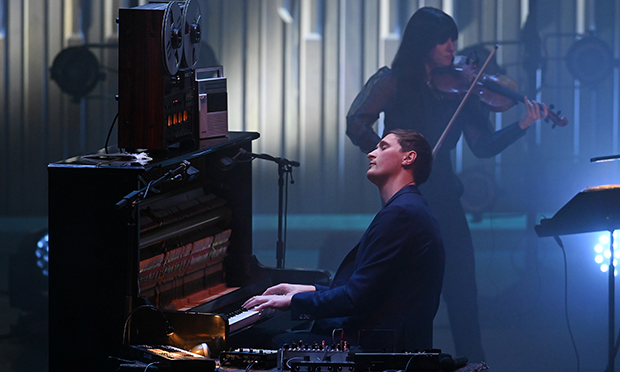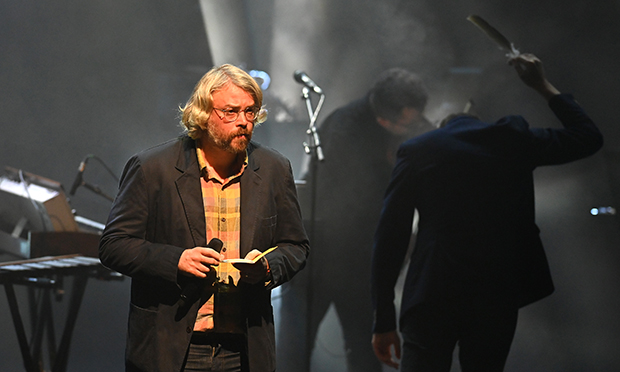Erland Cooper: Live at the Barbican, music review: ‘A rare and wild talent’

Photograph: Mark Allan / Barbican
An image that stays with me long into October’s biting night is Erland Cooper holding aloft an old-fashioned recording machine, with the hypnotic call of curlews blasting forth into the sparsely filled hall of the Barbican.
Utter transportation occurred, shipping us out to the windswept islands of Orkney, Cooper’s home.
The talented composer, pianist and singer gives an hour-long selection of his three albums, championing the sounds and sights of the isolated archipelago off the coast of Scotland.
Having always wanted to visit the islands, this safe trip has all the joy of exploration without the guaranteed Scottish downpour, or the risk of catching a deadly virus.
The performance is part of the Barbican’s new programme of live shows, From our Hall to your home, which runs until 13 December.
Twelve performances are being streamed into the homes of anyone who cannot visit the venue in person, keeping the magic of live music going in a time when we need it most!
For those of us lucky enough to be there, it is masks-on throughout, and there are one-way systems in place. The Barbican feels different but very safe, and I never felt jostled or at risk at any point in the evening.
Cooper is introduced by Mary Anne Hobbs, and he and his band of wonderful string players from the London Contemporary Orchestra are perfectly framed by the visuals of Alex Kozobolis.

Shadows dance, and a blue wash dominates the colour palette, projections overlapping with the rising hands of the musicians.
Lottie Greenhow provides the whooping operatic sections of Cooper’s music, standing like a statue at the front of a ship as her voice fills the space.
The waves lap at our feet, the smoke and spray fill the hall – we’re on a ferry bound for the little specs of land thrown out into the ocean.
Cooper’s composition is grounded in classic of the genre but works in sections of soundscape, more electronic moments, and at points even gives flashes of the Scottish band Mogwai.
Heavily influenced by Philip Glass’s music, Cooper is even more playful with how far he can push the classical patterns, completely disregarding them at times. With a focus on strings, the songs blur into one another, broken only by sweet and unfrilly introductions by Cooper himself.
The poet Will Burns joins for the song ‘Maalie’, his words crackling as he shuffles on and off the stage in classic poet fashion.
Kathryn Joseph adds her unique voice to ‘Flattie’, sounding like burning twigs, or wind through a wood.
Both collaborations give depth and meaning to Cooper’s amalgamation of sounds.
Lastly, Cooper himself sings the crescendo of the evening, repeating ‘I am awake’ with a pleasant, clear tone to his voice – is there anything this man can’t do?
The sounds of sea birds allow us to dive into the composer’s psyche and heritage. Cooper clearly has a tender love for the place that bore him.
His ability to collate poetry, opera, string music, and soundscape, along with the calls of nature, into a seamless experience is a rare and wild talent.
So if, like me, you’re put off by the idea of a 14-hour drive and a ferry ride to Orkney, catch Cooper’s live stream or download one of his wonderful albums.
Lie back and be teleported instantly to this very special corner of the world, with a maestro as your guide.
Find out more about the Barbican’s programme of live stream performances here
